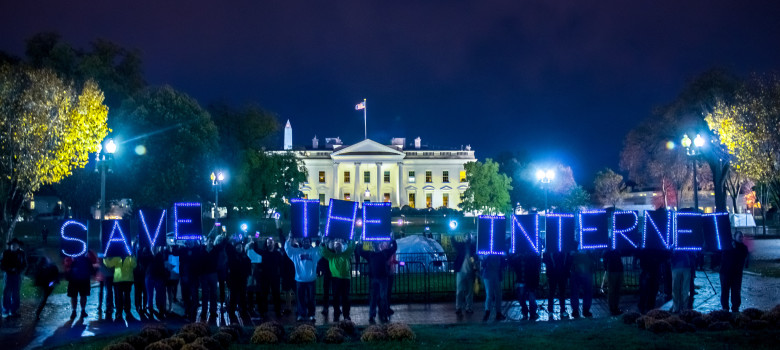U.S. President Barack Obama yesterday came out strongly in favour of net neutrality, urging the U.S. Federal Communications Commission to uphold core net neutrality principles. Obama’s comments were unsurprisingly welcomed by net neutrality activists throughout the U.S., though some caution that the ultimate decision still lies with the regulatory agency. Obama focused on the need for greater transparency along with rules to ensure no blocking, throttling, and paid prioritization. I wrote earlier this year on how Canada passed net neutrality regulations (termed Internet traffic management practices) in 2009, which address many of the issues raised by Obama.
Obama’s decision to wade into the net neutrality debate highlights how politicians can no longer simply avoid telecom, broadcast, and Internet issues by claiming that the matter is solely for regulators to determine. Policy issues such as net neutrality and Internet regulation have profound importance for millions and we should not be content to leave the issue exclusively to unelected regulators (no matter transparent their processes).
The question of the appropriate role for politicians on policies being considered by regulators has attracted attention on both sides of the border. For example, the involvement of elected officials in telecom and Internet policy captured headlines in Canada in September when the federal government declared that it would not support a “Netflix tax” as an outcome from the CRTC’s TalkTV hearings. The Netflix issues comes in the aftermath of a “mandate letter” to the CRTC on the appointment on CRTC Chair Jean-Pierre Blais that identified top priorities as well as active involvement on issues such as usage based billing.
The public comments on the Netflix tax sparked a backlash from some opposition parties, who claimed the government was “playing politics” with the CRTC. Blais was also clearly unhappy with the interventions both during the hearing and in the weeks that followed. Last Friday, he delivered a talk in Vancouver in which he pointedly criticized outside commentary and emphasized that CRTC decisions would only be based on the evidence raised in submissions and during the hearing.
Blais suggested that government comments will have no impact on the outcome of the policy process, which seems somewhat unrealistic. An independent agency must obviously be free to make its own decisions, but the notion that governmental comments – whether President Obama’s on net neutrality in the U.S. or the Canadian government’s on Netflix here – can be ignored because they are not offered directly through the formal policy process only breeds further uncertainty since it is elected officials, not regulators, that ultimately have the final say on these matters. Indeed, much of the recent criticism appears to be an effort to mask criticism with the substance of policies by focusing on process. There is a danger that politicians can overstep the boundaries with independent agencies, but digital policies are too important to be left solely to the CRTC or FCC.








Pingback: Obama endorses net neutrality | WiredPen
Hi, i think that i noticed you visited my weblog so i came to go back the favor?.I’m trying to find issues to enhance my website!I guess its ok to make use of some of your concepts!!